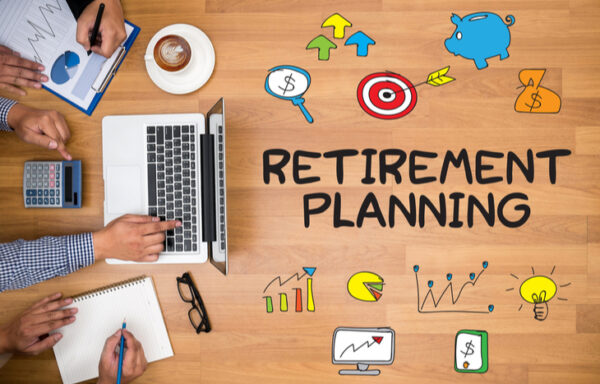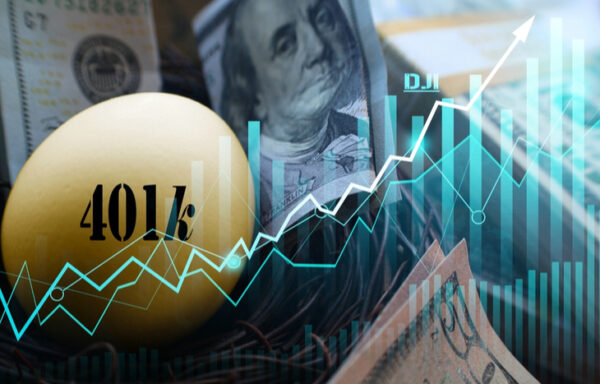The Secret to Keeping Your Cool This Election
Well, tomorrow is it – the day we start waiting weeks for the final election results and fighting over whatever the 2020 version of hanging chads is.
There is a lot of built-up anxiety surrounding the election, and regardless of what happens, nearly half of the country is going to be bitterly disappointed.
At best, there will be protests in the streets. I don’t even want to think about “at worst.” The loser is likely to claim that the election was stolen. It’s going to be an emotional time.
One thing we know is that emotions and money do not mix.
I’ve never once made an emotional financial decision that was the right move.
But separating emotions from money is hard. Money issues run deep. Money is tied to security, freedom, comfort, health and – for some people – self-worth. Money can bring up a lot of feelings from how we grew up. It’s complex stuff.
I learned many great financial lessons from my dad, particularly about saving and not getting into debt. I also learned how not to handle my investments.
The Black Monday stock market crash in 1987 sent stocks plummeting 23% in one day. I can’t imagine how scary that must have been for my dad, at the time a 51-year-old educator and the sole breadwinner of his household with a kid in college and another one going in a few years.
He immediately dumped his stocks and put his money into safe Treasurys.
That was the absolute worst choice he could have made.
It took only two years for stocks to recover from the crash. Had he held on, my dad would have made all of his money back – and then some – because he also likely missed a good chunk of the massive bull market that ran until 2000.
As we head into a period that is likely to be filled with heightened anxiety and perhaps fear, it is important to remember markets go up over the long term.
They have for well over 100 years, and that’s not about to end anytime soon. Not as long as companies find new ways to satisfy customers’ needs, which grow their earnings…
Sure, some companies that don’t grow long term will stagnate or fail altogether. But they will be replaced with many new companies whose products and services we can’t even begin to imagine.
Back when my dad was selling his stocks, certainly he couldn’t have fathomed the existence of Amazon (Nasdaq: AMZN), Tesla (Nasdaq: TSLA), Apple (Nasdaq: AAPL) and many, many other winners that came along.
Over the past 100 years, the S&P 500 (or a proxy for the index before it was created) has returned an average of 6.1% per year. When you include dividends, that comes out to 10.4%.
Think of all the things our nation has endured during that time: the Great Depression, World War II, the Cuban missile crisis, the assassinations of President John F. Kennedy and Martin Luther King Jr., civil unrest, Watergate, and the financial crisis.
Despite it all, the market returns double digits annually over the long term.
Will the results of the presidential election be important? As Jerry Lundegaard from the movie Fargo might say, “You’re darn tootin’!”
Will it impact the long-term performance of the market? Not likely.
If your emotions start to get heightened in the aftermath of the election, think back to some of the awful events mentioned above and how scary those times were. And remember that the market goes up over the long term.
Also remember the lesson of my dad selling after a crash. I do every time stocks take a dive.
About Marc Lichtenfeld
Marc Lichtenfeld is the Chief Income Strategist of Investment U’s publisher, The Oxford Club. He has more than three decades of experience in the market and a dedicated following of more than 500,000 investors.
After getting his start on the trading desk at Carlin Equities, he moved over to Avalon Research Group as a senior analyst. Over the years, Marc’s commentary has appeared in The Wall Street Journal, Barron’s and U.S. News & World Report, among other outlets. Prior to joining The Oxford Club, he was a senior columnist at Jim Cramer’s TheStreet. Today, he is a sought-after media guest who has appeared on CNBC, Fox Business and Yahoo Finance.
Marc shares his financial advice via The Oxford Club’s free daily e-letter called Wealthy Retirement and a monthly, income-focused newsletter called The Oxford Income Letter. He also runs four subscription-based trading services: Technical Pattern Profits, Penny Options Trader, Oxford Bond Advantage and Predictive Profits.
His first book, Get Rich with Dividends: A Proven System for Earning Double-Digit Returns, achieved bestseller status shortly after its release in 2012, and the second edition was named the 2018 Book of the Year by the Institute for Financial Literacy. It has been published in four languages. In early 2018, Marc released his second book, You Don’t Have to Drive an Uber in Retirement: How to Maintain Your Lifestyle without Getting a Job or Cutting Corners, which hit No. 1 on Amazon’s bestseller list. It was named the 2019 Book of the Year by the Institute for Financial Literacy.






